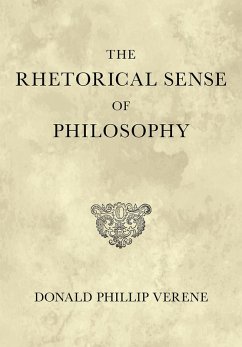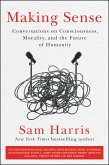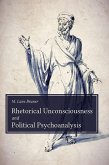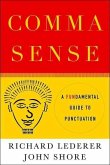Philosophy and rhetoric are both old enemies and old friends. In The Rhetorical Sense of Philosophy, Donald Phillip Verene sets out to shift our understanding of the relationship between philosophy and rhetoric from that of separation to one of close association. He outlines how ancient rhetors focused on the impact of language regardless of truth, ancient philosophers utilized language to test truth; and ultimately, this separation of right reasoning from rhetoric has remained intact throughout history. It is time, Verene argues, to reassess this ancient and misunderstood relationship. Verene traces his argument utilizing the writing of ancient and modern authors from Plato and Aristotle to Descartes and Kant; he also explores the quarrel between philosophy and poetry, as well as the nature of speculative philosophy. Verene's argument culminates in a unique analysis of the frontispiece as a rhetorical device in the works of Hobbes, Vico, and Rousseau. Verene bridges the stubborn gap between these two fields, arguing that rhetorical speech both brings philosophical speech into existence and allows it to endure and be understood. The Rhetorical Sense of Philosophy depicts the inevitable intersection between philosophy and rhetoric, powerfully illuminating how a rhetorical sense of philosophy is an attitude of mind that does not separate philosophy from its own use of language.
Dieser Download kann aus rechtlichen Gründen nur mit Rechnungsadresse in A, D ausgeliefert werden.









